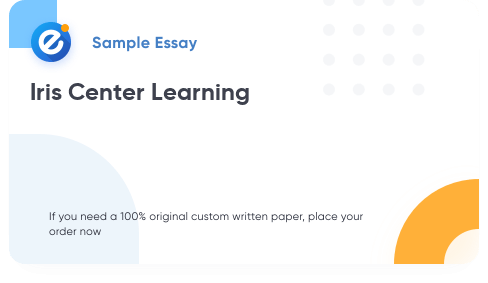
The Peer Assisted Learning Strategies (PALS) is a class-wide peer tutoring where teachers identify and evaluate students. The students need help with skills; teachers select the appropriate students in the class to assist their fellow students with the skills. Students pair as “players” and “coaches”, but the roles rotate as the activities change. The program is designed for the complementing and not replacement of the curriculum and provides students with opportunities to practice what their teachers have taught them. This paper discusses the benefits attributed to the PALS program, specific skills in reading addressed by K-PALS and first-grade PALS as well as the differences concerning the recommended method of grouping for K-PALS versus the recommended grouping method for first grader PALS.
The benefits of PALS
The program provides many benefits for both students and teachers. Firstly,
all students get actively involved in the tasks that they are comfortable. Secondly, the program does not require any particular materials for reading; this enables teachers to use reading materials of their choice. Through this, the teachers are offered flexibility for the incorporation of PALS into many content areas.
Calculate the cost of essay
The program offers direct opportunities to the teachers to circulate the class, when doing this the teachers can engage students and offer their individual remediation. The program, therefore, allows differentiated instructions where partners work simultaneously on activities that are directed by the teachers.
The program motivates students to put more effort in their studies to get better at reading and basic math skills. The program expands the resources of the institution in the classroom and provides an environment for positive and productive interaction among the peers. The PALS program provides students with opportunities to participate in integrals roles and valued activities.
The Peer Assisted Literacy Strategies program includes three supplemental reading programs, the kindergarten PALS (K-PALS), the first grade PALS, and the teacher-Directed PALS. These series are based on the current and confirmed research in reading. The programs are highly efficient in the reading interventions. They are mainly beneficial to the students who experience difficulties in reading.
Limited Time
special offer
Kindergarten PALS
The program is taught for twenty minute sessions three days a week. For the accommodation of academic diversity, the reading skills have different levels of difficulty and can be adjusted to fit the children who require more time to master the content. The program also provides the teachers with scripted lessons to use when teaching students how to conduct the peer tutoring sessions.
The routine focuses more on word recognition and phonemic awareness. Word recognition is taught through the use of sound blending, word segmentation, and the sending out of word activities. This provides explicit strategies for sounding out words. By the end of the program, the students begin reading text with basic context.
The teaching of phonemic awareness is done through the use of picture cards representing words in the letter name, letter sounds, and hearing sound games. During the letter name game, the teacher comes with a new letter each day and gives a preview of the previously learned letter names. In the letter sound games, the teacher teaches the students basic letter and sound correspondences while, in the hearing sounds, the teachers teach students how to verbally segment words into the phonemes and identify the beginning and ending of the isolated sounds.
Benefit from Our Service: Save 25%
Along with the first order offer - 15% discount, you save extra 10%
since we provide 300 words/page instead of 275 words/page
First Grade PALS sessions for the first graders are held for thirty minutes and conducted for three days a week. The students are grouped into pairs and taught on how to undertake each activity. The lessons teach word recognition and phonemic awareness. The program, however, focuses on fluency development, vocabulary development, comprehension, and wide reading. There is the combination of carefully designed systematic phonic instructions with the independent practices when reading connected text as well as trade books with the aim of engaging students in reading.
Differences in the recommended method of grouping
The PALS program’s goal is to improve academic performance of children with diverse needs in learning through utilization of peer tutoring method of grouping. The different methods of grouping differentiate the student characteristics being addressed. These differences include delays in mathematical concepts, aggressive behaviors, the lack of organizational skills among others.
VIP Services
Extended revision period $2.00
SMS notification of the order status $3.00
Get order proofread by editor $3.66
Get order prepared by top 30 writers $4.40
Get a full PDF plagiarism report $5.99
Get VIP support $9.99
VIP Services package with 20% Discount $23.23
In a situation where one student remains without a partner, I would ensure that the students are grouped according to their abilities in groups of two and three so that each student will have a partner to carry out the activities.

